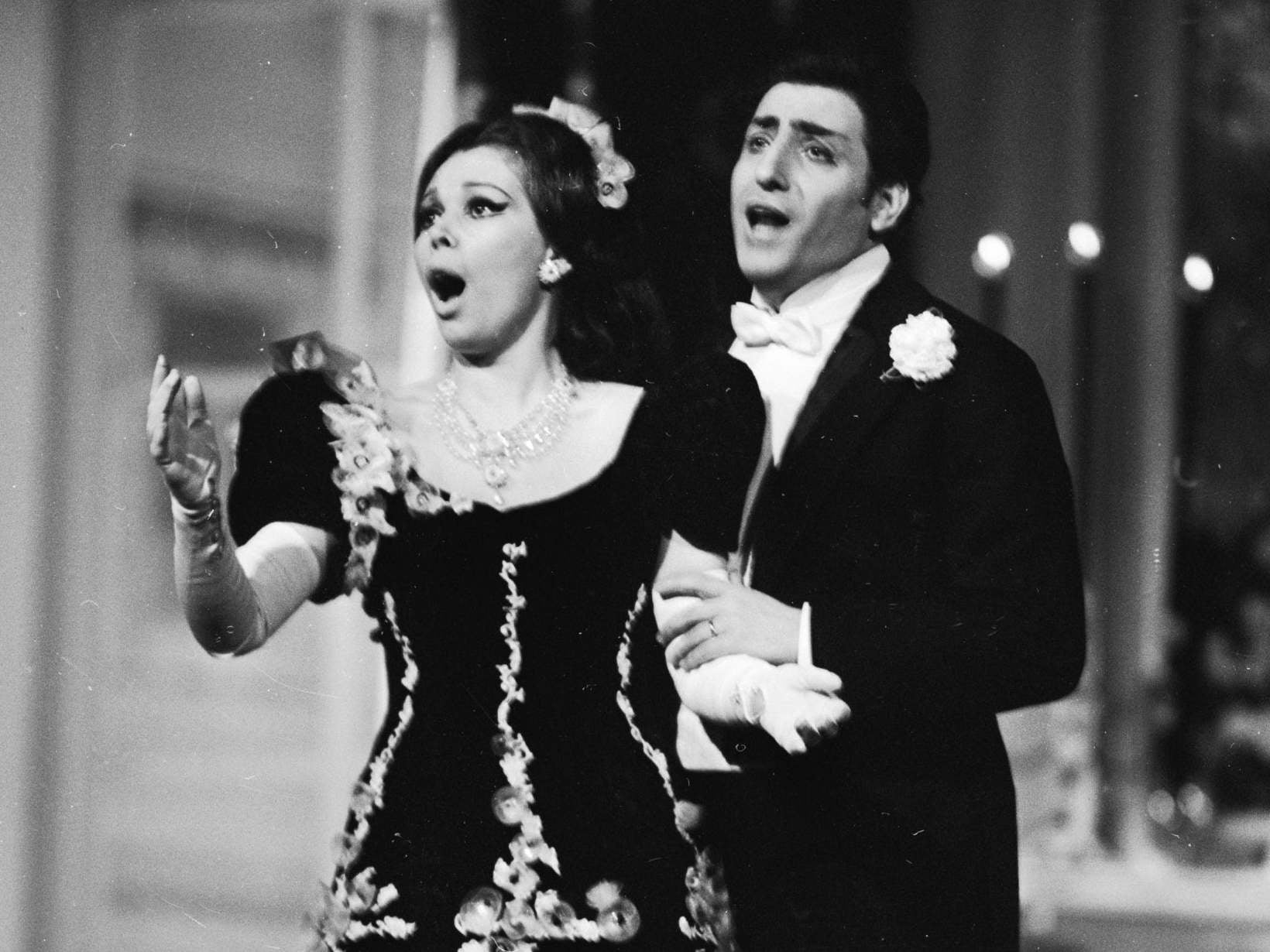Mirella Freni: Showstopping opera star for more than five decades
She was renowned for her dazzling technique and pure tone that seemed not to wither with age

Mirella Freni’s lyrical voice and bravura performances in Carmen, La Boheme and The Marriage of Figaro throughout a 50-year career made her one of the world’s most beloved operatic sopranos.
Freni, who has died aged 84, was sometimes called “the last primadonna”. She was a childhood friend of opera superstar Luciano Pavarotti and was a lyric soprano known for her brilliant technique and purity of tone, with an almost girlish quality that never seemed to age.
Her voice was so vibrant that she continued to sing the roles of youthful ingenues, such as Mimi in Giacomo Puccini’s La Boheme and Susanna in Mozart’s The Marriage of Figaro, well past the age of 50. Of the many renowned sopranos of her era, including Maria Callas, Joan Sutherland, Renata Tebaldi and Renata Scotto, Freni had the longest career.
The epithet “the last primadonna” was not meant as a term of derision to indicate the high-handed, temperamental behaviour of some opera stars. Freni was, by most accounts, well liked by her musical colleagues. Instead, it was intended as a literal translation from Italian: the first lady, or the female singer who dominates an operatic stage through the force of her singing and presence. It was a vocal tradition that dated back more than a century.
During her youth, Freni developed her singing style from the Italian bel canto tradition, which emphasised a natural tone and a supple vocal technique in which the singer showed no strain. Freni had the ability to project even the softest pianissimo passages across a stage. At its best, as in Pavarotti and Freni, the bel canto training could produce a remarkable emotional rapport between singer and audience.
After making her operatic debut in her hometown of Modena in 1955, Freni gained international stardom in 1963, when she first appeared at Milan’s La Scala opera house in La Boheme. Flowers filled the stage after her performance as the doomed, consumptive Mimi. The reviews were rapturous, and she reprised the role for her 1965 debut at New York’s Metropolitan Opera.
She appeared on the world’s leading stages, from Paris to Vienna to San Francisco, receiving ovations for her performances in Donizetti’s L’Elisir d’Amore, Charles Gounod’s Faust and Romeo and Juliet and Puccini’s Turandot, in which she was the secondary character of Liu, instead of the more vocally demanding title role.
Under the guidance of conductor Herbert von Karajan, Freni broadened her repertoire through the 1970s to include such dramatic parts as Desdemona in Giuseppe Verdi’s Otello, Elisabeth of Valois in Verdi’s Don Carlo and the title roles in Verdi’s Aida and Puccini’s Manon Lescaut. In 1976 she made a filmed version of Puccini’s Madama Butterfly, which also featured Domingo, with Von Karajan conducting.
One of Freni’s few missteps came in 1964, when, at Von Karajan’s urging, she attempted Verdi’s La Traviata at La Scala. She replaced Scotto, a fan favourite in Milan, and the opening-night audience booed Freni, blowing whistles and throwing debris onstage in a near riot. She left the production after a single performance. After she matured as a singer, Freni returned to the difficult Traviata role with notable success.
Mirella Fregni – she later dropped the “g” from her name – was born in Modena in 1935. Her father was a barber and civil servant; her mother worked with Pavarotti’s mother at a tobacco factory – the same setting as Georges Bizet’s Carmen, Freni noted.
She began singing along with recorded operas as a child, and when she was 12 she won an international competition, singing an aria from Madama Butterfly. Her teacher recommended that she curtail her performances for several years, to concentrate on building her technique through scales and exercises.
“A young voice is like a young tree: it will not grow up straight if you place a heavy weight on top of it,” she once said.
Freni made her formal operatic debut in her hometown in 1955, as Micaela in Carmen. That year she married Leone Magiera, a choral leader and conductor, and they had one daughter – named Micaela, after Freni’s role. The marriage ended in divorce, and Freni later married Bulgarian-born operatic bass Nicolai Ghiaurov, with whom she often collaborated onstage. He died in 2004.
After retiring from performing, Freni lived in Modena and Milan and taught master classes for aspiring opera singers.
Throughout her long career, she maintained a lithe physique and a remarkably resilient voice, which she said was the result of constant practice and care.
“People ask me all the time, just like you, what is my secret, what is the magic? Why am I still here?” she said in 1990. “I love and respect my instrument. I was born with an instinct for what is right, the correct technique, and I have worked on that mostly myself. There were many who said I would kill myself with some of the parts I did, but I’m still here.”
She is survived by her daughter.
Mirella Freni, singer, born 27 February 1935, died 9 February 2020
© Washington Post
Subscribe to Independent Premium to bookmark this article
Want to bookmark your favourite articles and stories to read or reference later? Start your Independent Premium subscription today.

Join our commenting forum
Join thought-provoking conversations, follow other Independent readers and see their replies